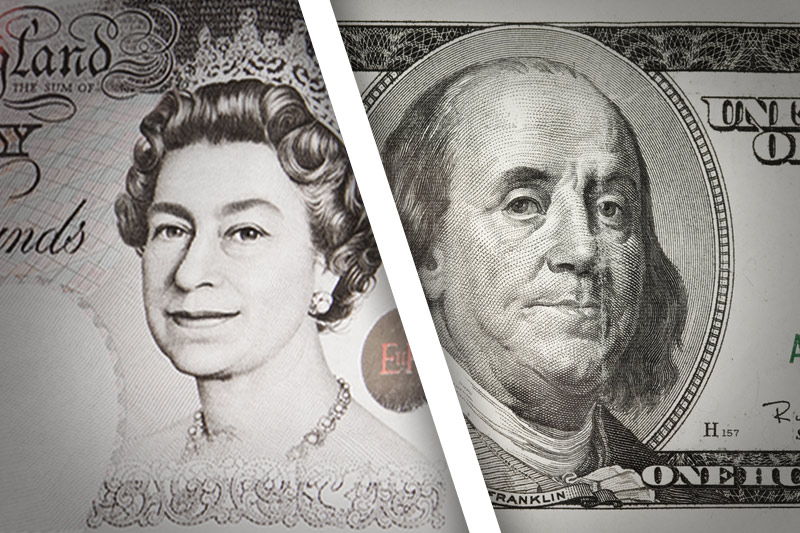Investing.com - The pound held steady to slightly higher against the dollar in early afternoon trading on Tuesday after U.S. and U.K. inflation data released earlier supported both currencies.
In U.S. trading on Tuesday, GBP/USD was trading at 1.6736, up 0.04%, up from a session low of 1.6662 and off a high of 1.6749.
Cable was likely to find support at 1.6566, the low from April 7, and resistance at 1.6820, Thursday's high.
The Labor Department reported earlier that the U.S. consumer price index rose 0.2% in March, exceeding expectations for a 0.1% gain, after a 0.1% uptick the previous month.
The on-year rate rose 1.5% in March, beating estimates for a 1.4% gain though still below the Fed's 2% target, which gave the pound a slight edge over the dollar.
The core consumer price index, which excludes volatile food and energy items, rose 0.2% last month, beating estimates for a 0.1% increase, after a 0.1% gain in February.
The on-year core consumer prices index rose 1,7%, beating estimates for the index to remain unchanged at 1.6%.
Elsewhere, a separate report showed that the Empire State manufacturing index fell to 1.3 for April from 5.6 in March, defying expectations for a rise to 8.2.
Investors viewed Tuesday's data as solid enough to keep the Federal Reserve dismantling its monthly asset-purchasing program, which currently stands at $55 billion.
Monthly bond purchases by the Fed weaken the dollar by suppressing borrowing costs, sending investors to stocks in hopes in investing and hiring follow.
Meanwhile across the Alantic, data revealed that the U.K. consumer price index rose 0.2% in March, in line with expectations, after a 0.5% increase the previous month.
On a yearly basis, U.K. CPI rose 1.6% last month, in line with market expectations, after a 1.7% gain in February.
Elsewhere, sterling was up against the euro, with EUR/GBP down 0.07% at 0.8256, and down against the yen, with GBP/JPY down 0.24% at 169.97.
In Europe earlier, the single currency came under pressure earlier after data showed that the ZEW index for German economic sentiment fell to an eight-month low of 43.2 this month from 46.6 in March. Analysts had expected the index to decline to 45.0 in April.
On Wednesday, the U.S. is to produce reports on housing starts, building permits and industrial production.
The U.K. is to release official data on the change in the number of people unemployed and the unemployment rate, as well as data on average earnings and public sector borrowing.
